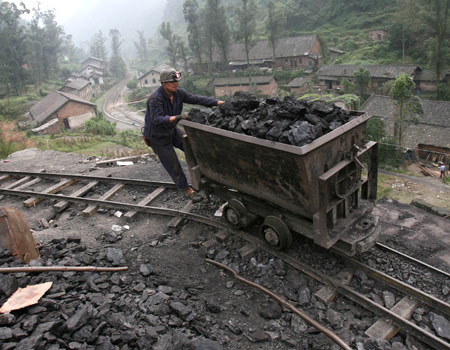I do not want to challenge 19 really smart professors, but I am skeptical of all the conclusions in the new report from the National Research Council, Hidden Costs of Energy: Unpriced Consequences of Energy Production and Use. The report, as titled, examined costs of energy, especially coal, that go unaccounted for in market prices.
The report estimates dollar values for several major components of these costs. The damages the committee was able to quantify were an estimated $120 billion in the U.S. in 2005, a number that reflects primarily health damages from air pollution associated with electricity generation and motor vehicle transportation. The figure does not include damages from climate change, harm to ecosystems, effects of some air pollutants such as mercury, and risks to national security, which the report examines but does not monetize.
The report made significant conclusions about transportation, especially cars, according to GreenTech Media:
Overall, the transportation industry incurred $56 billion of mostly health-related damage in the United States in 2005. Driving cars typically contributed to less than a third of the hidden costs and translated into 1.2 cents to 1.7 cents per mile traveled, the report said.
Gasoline has earned a foul reputation because the country’s reliance on foreign oil. But the heavy focus on domestically produced ethanol doesn’t necessary provide less damaging options, the report found.
Impact from corn ethanol production was similar or “slightly worse” than gasoline because turning corn into fuel takes more energy, the report said. Making ethanol from corn stover and other types of plants, on the other hand, inflicted less damage.
Electric and plug-in hybrid cars also aren’t as “green” as they appear. While these cars produce less or no emissions, they are run on power from fossil fuels, the report said. Manufacturing batteries and electric motors also takes up quite a lot of energy.
The report concluded that the non-climate damage caused by manufacturing and operating electric/hybrid cars was “somewhat higher” than other types of cars in 2005, and the same trend would continue in 2030.
Maybe it’s difficult, but how do you release a study like that without taking into account the effect on the environment or admitting the political difficulties of oil. I’m not going to disagree that electric cars that essentially run on oil are problematic too. However, electric cars, which are picking up steam from major manufacturers, have potential because they could run on renewable energy. Yet, that doesn’t mean all oil-based cars are inherently wrong.
Electric cars are only part of a larger transit solution, but if we drive electric cars as we drive our current cars we will still have problems. Our goals instead should always be as follows (in no particular order):
– Driving less, of any car.
– Taking public transportation, walking and cycling more.
– Owning cars for a longer time. Fuel efficiency is only relevant if the energy to build a car is not used every 2-4 years.
– Driving fuel-efficient cars.
– Building environments and neighborhoods that emphasize these values.
I’m glad someone is taking account of energy use and not just mindlessly swooning over electric cars. However, electric cars provide part of an answer in a transit and energy revolution and should not be dismissed just because they may run on coal energy now. Real economists cannot look at just one sector and claim to have made a whole study, the politics and environmental effects of oil and coal and potential for new energy solutions must be taken into account as well.

 Shana Tova loyal Transit Pass readers. I welcome you all back and wish you all a happy and healthy new year. In Sunday’s New York Times, long-time columnist Thomas Friedman wrote about the necessity of
Shana Tova loyal Transit Pass readers. I welcome you all back and wish you all a happy and healthy new year. In Sunday’s New York Times, long-time columnist Thomas Friedman wrote about the necessity of 
